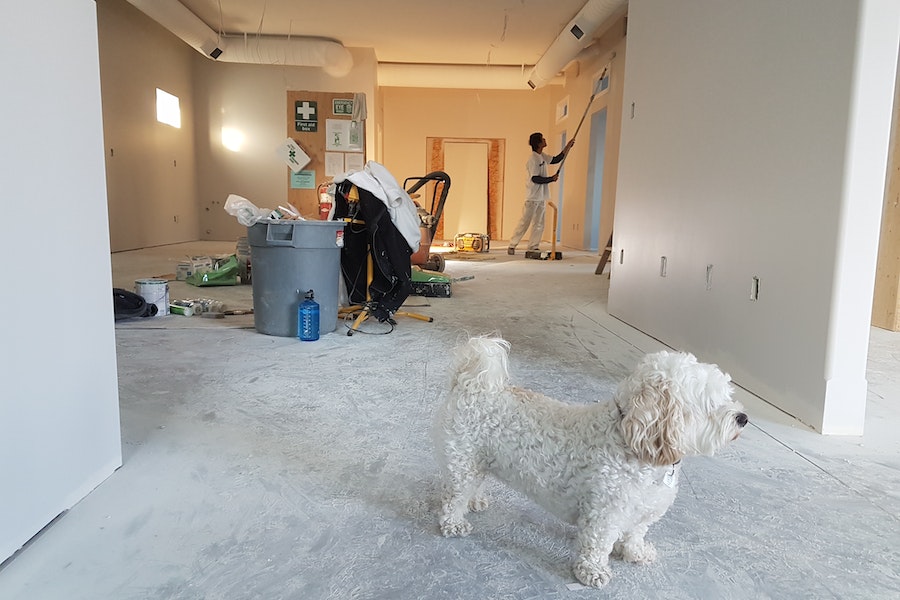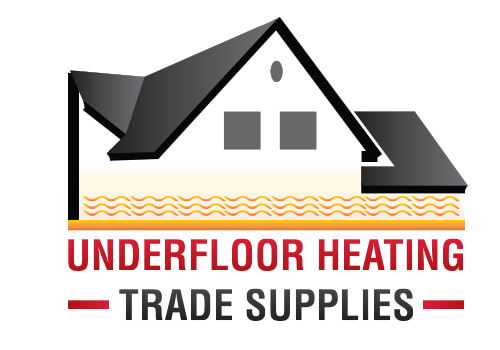
So, you’re thinking about renovating your house?
House renovation is a topic capable of shaking most people’s nerves – there’s a lot of time, effort, and money involved in even the smallest projects. The overwhelming nature of renovation makes homeowners delay or postpone their plans indefinitely. But it doesn’t have to be as chaotic as you might have made it in your mind.
Please don’t fall into the worry trap; read our advice on where to start when renovating a house to decide where your priorities lie and get organised.
Assess the potential
If you’ve started considering renovation, you will likely already have a property to play with. If you have a space and a building to work with, don’t get too ahead when considering all the features you want to include in your renovation. Before you begin putting serious plans into place, it’s worth stepping back and assessing the realistic potential of the property. Answer the following questions to help you figure out what is possible and where you could start. This will be handy for meeting with an architect or project planner.
1. What have neighbouring properties done?
If your neighbours have extensions, conservatories, or any other big additions to their houses, it’s likely that you’ll be able to get planning permission to do the same. Chat with them about the improvements they’ve made and ask them if they came up against any barriers.
2. Do you have space to extend?
Not all properties have a lot of additional land to play with, but even a small extension can make a world of difference. Review the area that you have available to you and decide whether an extension is worth it.
3. Are there any obvious repairs that need doing?
Any significant repairs have the potential to eat into your budget. What needs repairing before you go ahead, and what can wait? We’d always recommend squaring off whatever needs fixing before you move on to the next steps. Problems with foundations, boilers, insulation, etc., can be painful to fix.
Consider your budget
The first step for anyone considering a renovation is to consider your budget. Unless you have an unlimited fund of money to splash on your home improvements, you’ll need to do your calculations carefully. Make sure to leave a chunk of cash to one side for emergencies (which, let’s face it, are almost inevitable when it comes to renovation work).
When working out your budget, think about the following:
- Planning and architect fees – before you even think about taking a sledgehammer to your walls, you need to consider planning and architect fees. Your dream renovation might not be possible, but an architect will help you get as close to it as possible while ensuring you have a sound plan. Generally, this cost will be around 5 – 12% of the overall project cost[i], depending on which architect or firm you hire.
- Tradespeople and builders – Labour costs are one of the highest costs when it comes to any building work, and because of that, you must make sure you do your research. Budget for builders, electricians, plumbers, and any other tradesmen you need to complete the job.
- Cost of materials – many builders will source their own materials and invoice you for them, so ensure you get a quote ahead of time for how much different tools and materials will cost them.
- Big ticket items – a massive consideration in your budget is the ‘big ticket’ items that form the basis of your renovation. Shop around to find the items you need. The costs of kitchens, bathrooms, boilers, and other fittings increase very quickly.
- Emergency contingency – you can’t predict all the costs of building work and renovations, especially whilst the economy is so rocky. It’s best practice to keep around 20% of the cost of your overall project to one side to absorb unexpected costs.
There are some ‘hidden costs’ that many people forget about when drawing up their renovation budgets.
- Building control – this is an unavoidable fee that falls outside of planning and architect fees, but it needs to be accounted for. Building control cost can be split into two – your application can cost around £200 – £300, and the building inspectors’ charge will be around £400 – £500.
- VAT – most trade websites advertised prices don’t account for VAT since their main customers are tradesmen who will be VAT exempt when making their purchases. If you buy directly from suppliers, you need to account for the extra 20% on top of anything you plan on purchasing – for example, £100 will become £120. This is a simple sum that will save you a lot of hassle.
- Finishing features – builders usually won’t include smaller aspects like paint, skirting, finishes, light fixtures… Make sure you discuss the ‘final touches’ with your builders and ensure this is included in your contract.
Draw up plans with a trusted architect
Find an architect that you trust and let them lead the way on drawing up your plans. Before signing a contract with an architect, you should always ask for references, to see their portfolio, and importantly, make sure that you get on with them. Renovations require a lot of money and time, so you need to be able to communicate freely with each other to ensure you, as the customer, are happy with the end results and don’t come up against any unexpected surprises.
Respected architects will also be able to put you in touch with trusted tradesmen and suppliers, so it’s a relationship that is definitely worth building for any future projects.
Consider timelines
Renovation projects often overrun, and its usually due to something unpredictable. Drawing up a realistic timescale with all parties involved in your renovation is sensible, but you should be prepared for delays. Don’t hang your hopes on a specific move-in or completion date.
Many people and families choose to live in their house during the renovation to save money. This can work well if you don’t mind occupying one room at a time, but we would suggest leaving the house entirely for the initial stages if a house-wide job (such as replacing electrics and plumbing) needs to be completed.
Energy saving additions
Energy saving is at the forefront of everyone’s minds right now – whether it be for financial reasons, or out of concern for the environment. Renovating a property is the perfect time to implement energy saving appliances and structural changes that will reduce your energy bills and your carbon footprint in one go. Here are our top considerations:
- Underfloor heating – we may be slightly biased, but underfloor heating is a perfect, cost-effective addition to any home. It is much more efficient than traditional radiators and uses 15 – 40% less energy[ii] by allowing you to have finer control over your heating.
- New doors and windows – put this high up on your priority list. Older properties often have subpar windows and doors that do nothing to keep the cold out, and the heat in. It’s a big investment, but one that is worthwhile.
- Insulation – insulating your walls, floors, and roof will stop heat from leaking out – bringing energy consumption down.
- Eco appliances – choose appliances with the best energy ratings possible to keep costs down in your kitchen and around other areas of the house.
Necessities vs. nice-to-haves
If you are on a tighter budget, weigh up what is a necessity, and what would just be a nice-to-have that can be added at a later stage. For example, double glazing and boilers are a necessity in any modern home. But a self-opening sky-light and integrated sound system can probably wait until later down the line.
Don’t get overwhelmed with your renovation
As you can see, there are loads of factors to mull over when it comes to a home renovation, but there is no reason to panic. There are plenty of professionals who can help you to design and create your dream space – whether you are renovating one room, or your entire house.
Sources
[i] https://www.checkatrade.com/blog/cost-guides/architect-fees/
[ii] https://www.idealhome.co.uk/property-advice/how-efficient-is-underfloor-heating-298556
Other Resources
youtube.com/watch?v=J9ucWfkPwr8&t=1s
